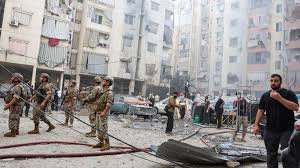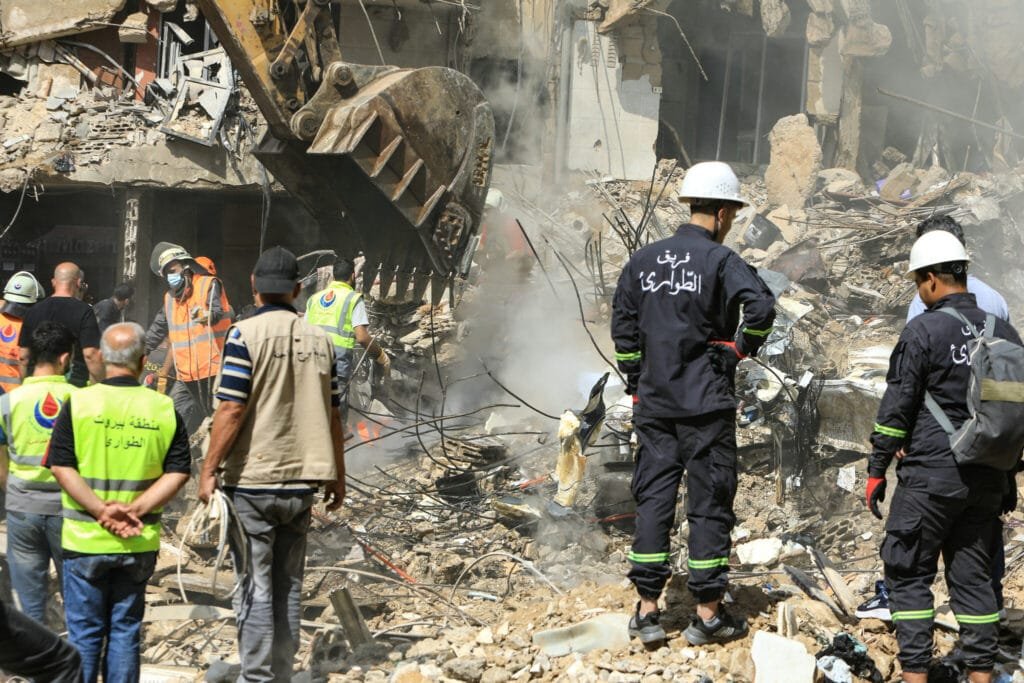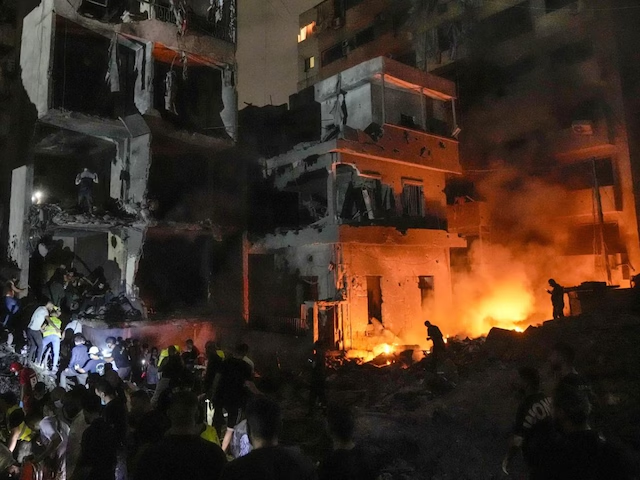Key Highlights:
Israel launched a dramatic escalation of regional conflict with airstrikes targeting Hezbollah positions in southern Lebanon and areas near Beirut. The airstrikes come in response to rocket attacks on Israeli territory attributed to Hezbollah and growing tensions with Iran. The situation has quickly escalated and engendered international concerns as regional powers and global leaders call for restraint to prevent widening war.
The Provocation: Missile Attacks and Border Skirmishes
The spark that lit the latest escalation was a series of Hezbollah rocket attacks from the Iranian-backed militiamen targeting northern Israeli towns. Several injuries were caused, along with damage to civilian infrastructure, prompting an immediate reaction by the IDF, which launched a retaliatory attack against key positions of the Hezbollah, command centers, and missile launch sites in southern Lebanon.

Sources pointed out that the attacks also hit areas within Beirut, which is one of the most significant military operations in the region since the 2006 Lebanon War. Israeli Prime Minister Benjamin Netanyahu said the operations targeted threats against Israel, and noted that the country “will not tolerate attacks on its sovereignty.” He maintained that should Hezbollah and other militant groups launch attacks, Israel will respond with force.
Hezbollah and Iran: The Regional Dynamics
The immediate cause has something to do with a type of permanent hostility between Israel and Iran. Hezbollah, the major proxy of Iran, has really been its linchpin in the said situation and always has been proxy for this area. Iran’s Supreme Leader Ayatollah Ali Khamenei condemned the airstrikes of Israel describing the said attacks as aggressive attacks to the sovereignty of Lebanon. He even threatened military actions that would open the doorway for a war of multiple fronts if continued.

Iran has somehow attracted global attention in the conflict, and many are anxious of the situation owing to the risk that it may blow up into a larger war. Tehran has been providing logistic and military support to Hezbollah over the years. On this matter, Iran’s handling on the matter adds another dimension to the ongoing conflict between Lebanon and Israel. Some analysts view the airstrikes at Lebanon as part of the Israeli plan of weakening Iran’s influence in the region.
International Reactions: Call for Restraint and Diplomacy
The outbreaks have triggered a new chain of international reactions, including appeals by the United Nations and other countries like the United States for restraint by all parties. With this tense situation, United Nations peacekeeping forces have been put on high alert in southern Lebanon. The UN has called for hostilities to stop immediately and to avoid escalating an already critical situation especially where civilians are concerned.
US President Joe Biden is maintaining that America doesn’t want to back down on the right of Israel to defend itself, but also cautions that innocents mustn’t die. This week the Biden administration pursued the diplomatic channels again, and signals of de-escalation were sent out to both Israeli and Lebanese authorities. The European Union meanwhile was overheard voicing its concern over the potential spread of this conflict and calling for a return to the dialogue.
Humanitarian Consequences: The Civilians Caught in the Fray
The escalating violence has made the humanitarian crisis in south Lebanon worse. Thousands of the displaced civilians have left their towns and villages and are escaping to safer parts of the country. Reports from local governments and international aid groups indicate a rise in demands for humanitarian relief, as many displaced families face shortages of food, water, and medical supplies.
The residents in northern towns in Israel have been instructed to move indoors as sirens continue to signal rockets arriving. The schooling and business activities have come to a standstill for the residents of the concerned districts. Communities on both sides of the border fear escalation, as the militaries of both countries do not seem to stop their military operations.
A Complex Battlefield: The Role of Hezbollah’s Network in Lebanon
Hezbollah’s immense military system in southern Lebanon is a threat to Israel. The group is said to have stockpiled thousands of rockets in its armory and built a tunnel network and shelters to house them against aerial bombing. It has complicated Israel’s military strategy because attacks on underground structures often lead to collateral damage.
In the context of the latest airstrikes, these strikes target those capabilities with the intent to destroy Hezbollah’s capacity for future attacks. The strikes are a part of a larger action meant to reduce Hezbollah’s capacity as an armed group along the Israeli border, but with the possibility of inviting more of the Hezbollah promised retaliations when the latter says that it intends to protect Lebanon from what it perceives as Israeli aggression.
What’s Next: Possibility of Escalation
One of the immediate risks, with this Israel-Hezbollah conflict heating up, is that of wider war. Analysts warn that other regional players, such as Syria, might complicate things further if things start to heat up further. Israel has itself, in the past, carried out attacks on Syrian soil targeting Iranian military installations. It has all the makings of a serious conflict spilling beyond Lebanon’s borders.
The situation is fluid: both sides are primed for more violence, even as the international community continues to call for restraint. The test in the coming days will lie in whether diplomacy can prevail over the violence or if the region slides into a wider conflict.
Conclusion: A Region on Edge
The current flare-up between Israel, Hezbollah, and Iran – or rather between Lebanon and Israel – spells the region’s volatility, where tensions may escalate into war overnight. The sudden blasts in Lebanon mark a change in the region’s magnitude of power and have shaken many around the world to question the stability of the region. In calls for dialogue by world leaders, security imperatives must fight with averting humanitarian catastrophe.
As the full implications of these events are yet to play out, one thing is clear: This situation has rejuvenated old tensions and reminded the world just how fragile the balance is that holds peace throughout the Middle East. International onlookers watch this unfolding saga hoping for resolution that would put more focus on peace rather than on conflict as realities on the ground might chart a far more complicated way forward.
For Latest News Updates Click Here
